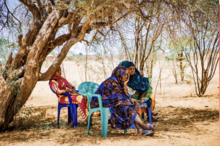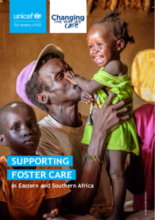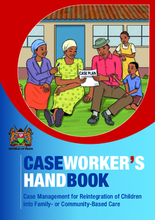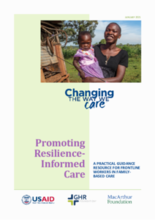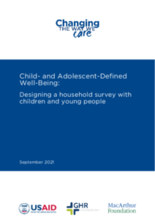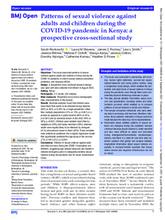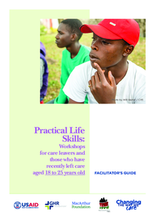This country page features an interactive, icon-based data dashboard providing a national-level overview of the status of children’s care and care reform efforts (a “Country Care Snapshot”), along with a list of resources and organizations in the country.
demographic_data
childrens_living_arrangement
children_living_without_bio
adoption
social_work_force
key_stakeholders
Key Stakeholders
Add New DataOther Relevant Reforms
Add New Datadrivers_of_institutionalisation
Drivers of Institutionaliziation
Add New Datakey_research_and_information
Key Data Sources
Add New DataChildren's Act, 2022 (Kenya)
Prevalence and number of children living in institutional care: global, regional, and country estimates
Social Protection and Disability in Kenya
Kenya Social Protection Sector Review
Country Care Review: Kenya
Child Developmental Disabilities, Caregivers’ Role in Kenya and Its Implications on Global Migration
Research findings on Alternative care system in Kenya for children without parental care
Charitable Children Institutions in Kenya: Factors Influencing Institutionalization of Children
Acknowledgements
Data for this country care snapshot was contributed by consultants with Maestral International.
Displaying 161 - 170 of 448
This framework was developed to guide the process of taking in vulnerable children by families, whether they are related to the specific families or not and bringing them up the same way they bring up their biological children.
This paper examines the nature and benefits of foster care and identifies some of the key challenges associated with this form of care in Eastern and Southern Africa. It outlines the elements of an enabling environment needed for successful large-scale foster care programmes, including legislation, guidance, changes to social norms, coordination mechanisms, and a strong social service workforce. The paper also provides lessons learnt from the region on how to support each stage of the foster care process.
7.5 million children all over the world live in charitable children’s institutions, commonly known as children’s homes or orphanages, yet 80 per cent to 90 per cent of these children have a living parent or known relatives. In Kenya, an estimated 45,000 children live in charitable children’s institutions for various reasons such as the loss of a parent or primary caregiver, poverty at home, sickness and disability, violence, abuse, and neglect.
When parents pass away, grandparents often assume the role of caregivers. Being thrust back into parenthood during a time of immense grief, and with a two-generation gap to bridge, introduces a range of challenges grandparents must overcome. This video look at the learning of practitioners from Upendo Village in Kenya in supporting grandparents caring for grandchildren after their own children have passed away from HIV/AIDs.
This Handbook is a summarized, simplified version of the Case Worker’s Guidebook for Case Management for Reintegration of Children/Young Adults into Family- or Community-Based Care. It provides an overview of the principles and practices of case management for reunification and placement of children/young adults outside of parental care (e.g., street-connected children/young adults or from Charitable Children’s Institutions and Statutory Children’s Institutions) into family- and community-based care, up until sustainable reintegration is achieved. The Handbook aims to provide an easy and quick reference to critical information and “how to” about case management for reintegration.
This practical guidance is for anyone working with children at risk of entering, already living in, preparing or having already left care. It discusses why and how to support children who are at risk of or who have already experienced adverse experiences that might lead to distress or trauma.
This report describes the process used for designing and facilitating focus group discussions with children and young adults, that informed the household survey design.
This study examined patterns of sexual violence against adults and children in Kenya during the COVID-19 pandemic to inform sexual violence prevention, protection, and response efforts.
This participants handbook has come into being by care leavers for care leavers. It has been developed based on the myriad of challenges shared and experienced by care leavers, hoping with the hope that it will support others leaving care.
This series of resources are designed by care leavers for care leavers to help equip youth for life outside of care, strengthen coping strategies, foster safety nets and community networks. It builds from earlier life skills work that the Kenyan Society of Care Leavers has done, supported by Changing the Way We Care with global best practices.

